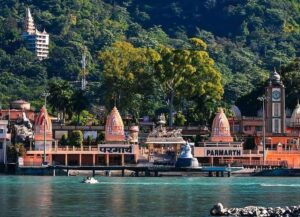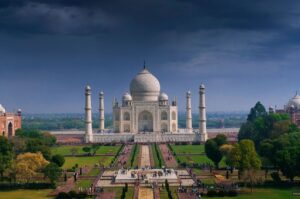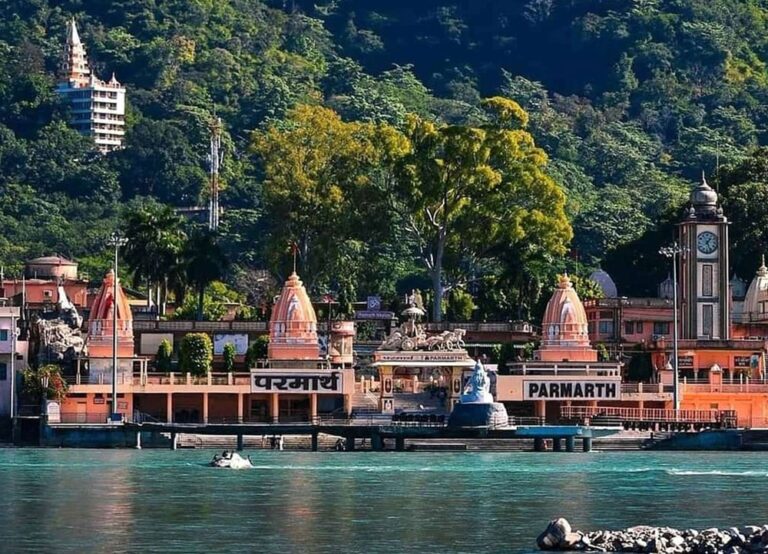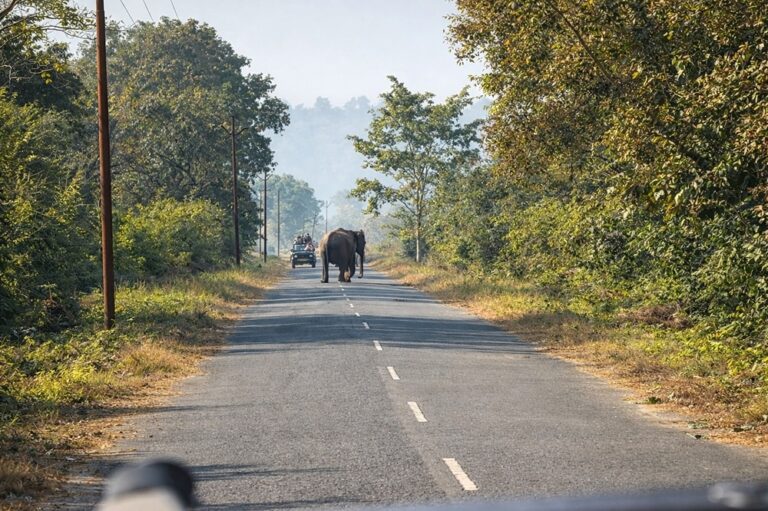Discover Meaning of Rishikesh: Why Rishikesh is called Rishikesh?
Discover Meaning of Rishikesh: The Yoga Capital of the World
The name Rishikesh itself is derived from Hrishikesha, one of the epithets of Lord Vishnu, which translates to “Lord of the Senses.” This connection underscores the temple’s importance in the spiritual landscape of the region.
Hrishikesha (Sanskrit: हृषीकेश ), meaning “lord of the senses,” is an epithet for Vishnu, the Hindu deity known as the preserver of the universe. This name appears as the 47th name in the Vishnu Sahasranama, a revered collection of Vishnu’s thousand names.
According to Adi Shankaracharya’s commentary, the name Hrishikesha has multiple meanings:
- The Lord of the Senses: Vishnu is the one who governs and controls the senses.
- He Who Controls the Senses: All sensory experiences operate under Vishnu’s influence and guidance.
- He Whose Hair is Like the Rays of the Sun and the Moon: Vishnu’s radiant presence, symbolized by his hair, brings joy and sustenance to the world.
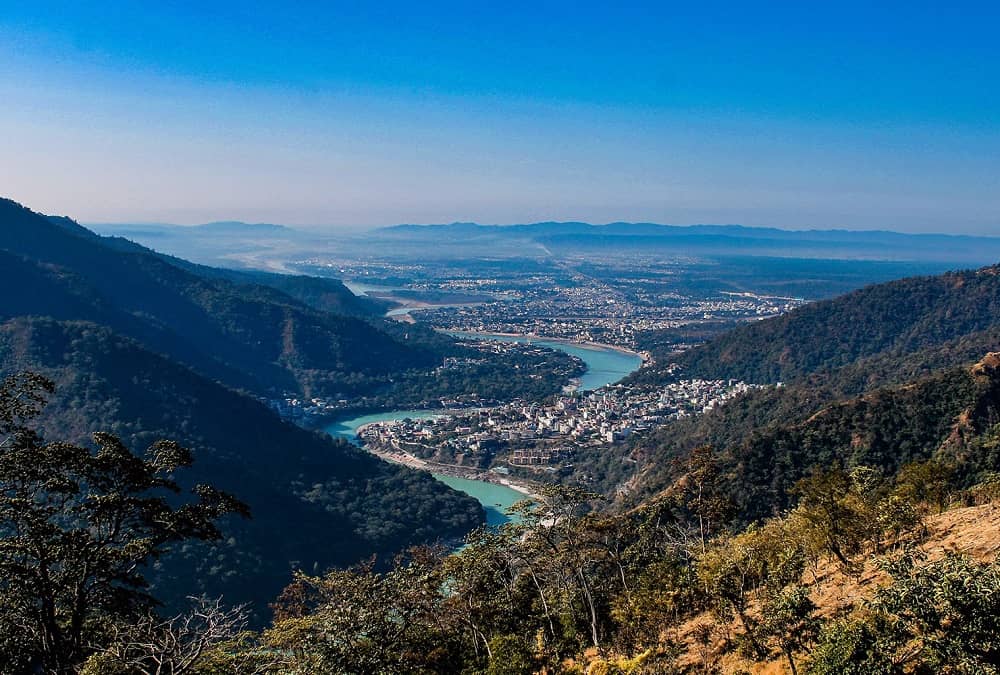
Mythological Background
According to the Skand Purana, the sage Raibhya Rishi and Pundit Sri Somnath Sharma meditated at this site, seeking blessings from Lord Vishnu. Their deep devotion was rewarded when Lord Vishnu appeared and named the place Rishikesh, signifying the triumph over the senses.
Rishikesh, also known as Hrishikesh, derives its name from Lord Vishnu, who manifested as Lord Rishikesh to the sage Rabhya Rishi after his intense austerities. This sacred city is steeped in mythology, with beliefs that Lord Rama performed penance here under the guidance of Sage Vashishtha to defeat the demon king Ravana.
It is said that Rama’s brother Lakshman crossed the Ganges using a jute rope, leading to the creation of the famous Lakshman Jhula bridge. Nearby, you can find temples dedicated to Lakshman, Rama, Bharat, and Shatrughna, each holding historical significance.
Rishikesh’s history is enriched with mythical stories. The renowned sage Raibhya Rishi is believed to have meditated here, earning divine grace when Lord Vishnu appeared as Hrishikesh, hence the name Rishikesh.
The area gained prominence as a pilgrimage site following the visit of Adi Shankaracharya in the 9th century AD, solidifying its religious importance. Some legends suggest that the name also stems from Lord Vishnu’s victory over the demon Madhu.
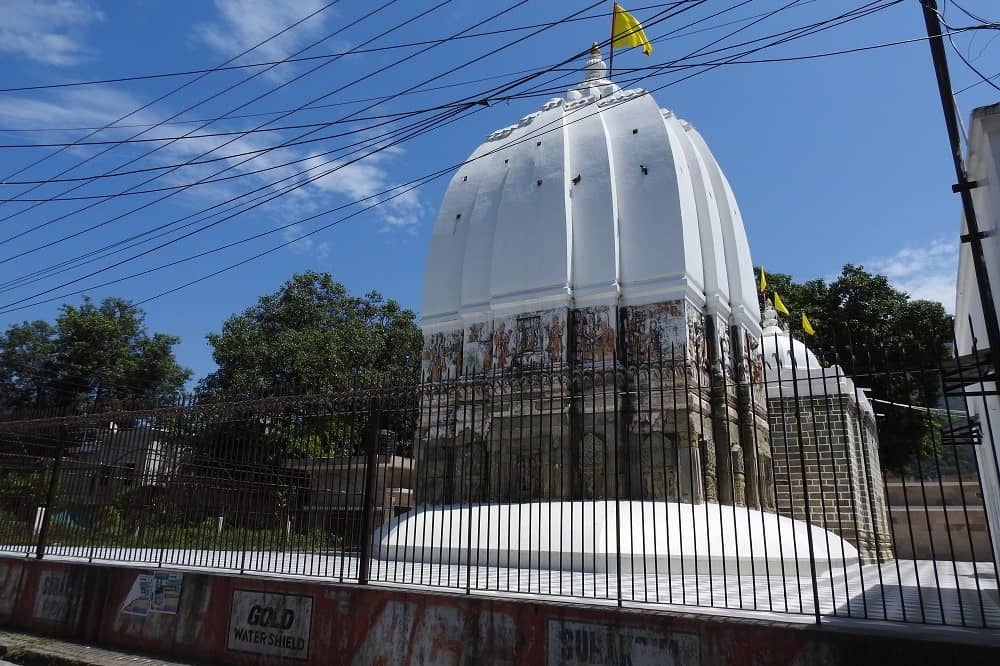
Association : Meaning of Rishikesh and Bharat Mandir
Inside Bharat Mandir, visitors can admire a full-sized idol of Lord Vishnu, meticulously crafted from Shaligram—an auspicious stone revered for making Vishnu idols. The idol features Vishnu holding four sacred items: the Shankha (conch shell), Gada (mace), Chakra (spinning disk-like weapon), and a lotus.
Visitors to Bharat Mandir will notice stunning depictions of Vishnu’s incarnations adorning the temple walls. The temple is also mentioned in several sacred texts, including the Srimad Bhagavatam, Vaman Purana, and Narsingh Purana, further affirming its significance in Hindu worship.
Adi Shankaracharya, a revered philosopher and theologian, reinstated the deity at Bharat Mandir around 789 A.D. on the auspicious day of Basant Panchami. This festival continues to be celebrated with an annual reinstallation ceremony, where the idol is taken to Mayakund near Triveni Ghat for a holy bath.
Clarifying Confusion
It’s important to note that despite the name “Bharat,” Bharat Mandir is not associated with Bharat, the brother of Lord Ram. Instead, “Bharat” is another name for Lord Vishnu, highlighting the temple’s dedication to him.
Rishikesh City India
It lies on the right bank of the Ganges River, Rishikesh has been a center for spiritual and religious activities for centuries. Surrounded by majestic hills, this town serves as the gateway for pilgrims heading to Badrinath and Kedarnath.
It is known as the Yoga Capital of the World, Rishikesh is home to numerous ashrams offering yoga and meditation courses. Visitors are captivated by its rich traditions, vibrant cultural performances, and delectable cuisine. The serene atmosphere encourages pilgrims and tourists alike to immerse themselves in the tranquility and spirituality of the area.

Festivals and Events
Yoga festivals in Rishikesh are among the most celebrated in India, attracting practitioners and enthusiasts from around the country. The festivals feature lectures, yoga classes, and Satsangs, allowing participants to deepen their practice and spiritual understanding. One of the highlights is the Ganga Aarti, a captivating religious ceremony that takes place during the yoga festival.
Must-Visit Attractions
Triveni Ghat
Triveni Ghat is a prominent bathing ghat along the Ganges. In the evenings, devotees sing hymns and float flowers and earthen lamps in the river, creating a breathtaking sight. Legend has it that this ghat marks the confluence of three sacred rivers.
Bharat Temple
Located near Triveni Ghat, the Bharat Temple is dedicated to Lord Vishnu and commemorates Bharat’s penance. The temple is renowned for its grand architecture and historical significance, having been renovated by Shankaracharya in the 8th century.
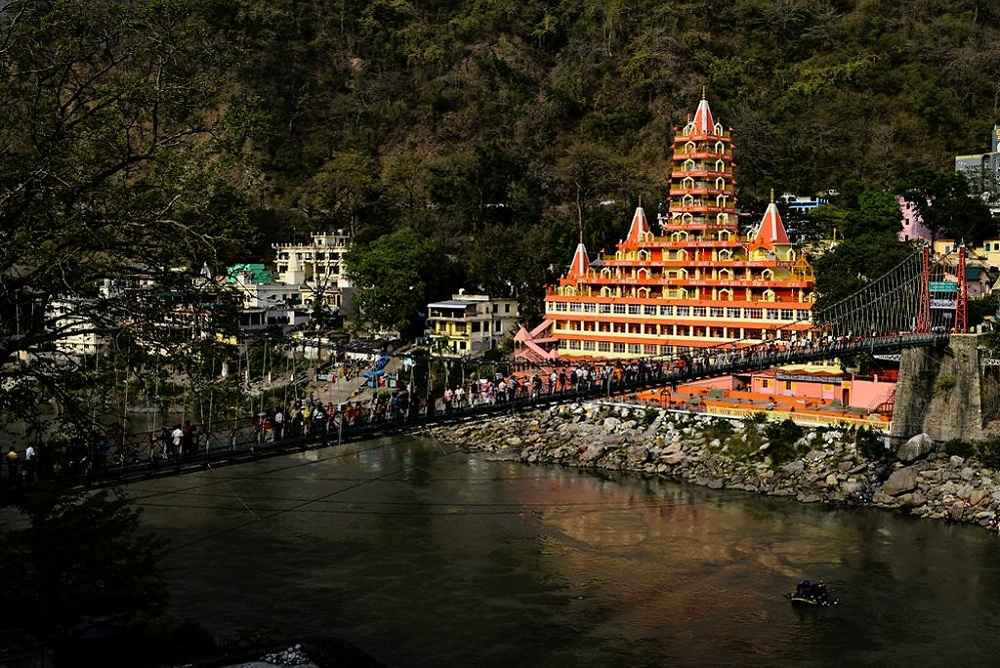
Lakshman Jhula
Lakshman Jhula is a hanging bridge spanning the Ganges, approximately 4 km from Rishikesh. It connects the regions of Tehri and Pauri. Legend has it that this bridge is named after Lakshman, who performed penance here. A temple dedicated to Lakshman is located nearby.
Neelkanth Mahadev
Situated about 12 km from Rishikesh (38 km by road), the Neelkanth Mahadev Temple is significant due to the legend of Lord Shiva drinking poison during the churning of the ocean. This temple attracts devotees year-round, especially during the month of Shravan.

Kunjapuri Temple
Perched on a hill 25 km from Rishikesh, the Kunjapuri Temple is dedicated to Goddess Durga. Accessible by road and a short trek, the temple offers stunning panoramic views of the Rishikesh valley and the Himalayas.

Vashisht Cave
Located about 25 km from Rishikesh, the Vasishta Cave is a site of meditation associated with Sage Vasishta. This ancient cave offers a glimpse into the spiritual practices of the past.
Conclusion
Rishikesh is a harmonious blend of spirituality, adventure, and rich history. Whether you’re seeking yoga, meditation, or thrilling activities like white-water rafting, Rishikesh offers an unforgettable experience that resonates with the spirit of India.
Meaning of Rishikesh, Meaning of Rishikesh , Meaning of Rishikesh , Meaning of Rishikesh , Meaning of Rishikesh , Meaning of Rishikesh , Meaning of Rishikesh , Meaning of Rishikesh , Meaning of Rishikesh , Meaning of Rishikesh



